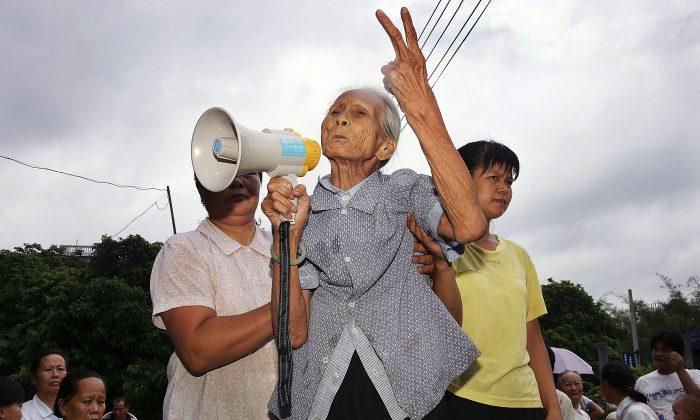CHINA—Despite salary increases for government officials and military personnel, many local officials have failed to implement the old minimum wage standards, and the salaries of many workers remain below the new minimum wage stipulated by the communist regime.
Radio Free Asia reporter Shi Shan interviewed Cai Chongguo, editor of the China Labor Bulletin in France, and Mr. Xu Beifang, a former China labor attorney now residing in England, about the inconsistencies in implementing a minimum wage standard in China.
Reporter: According to some Chinese media reports, many city and local authorities have established a minimum wage standard, but in reality, are unable to implement the new wage standard across the board. Mr. Cai, can you talk about your understanding regarding this?
Cai Chongguo: China established a minimum wage standard that varies from city to city. That is, for cities like Shanghai, Beijing, and so on, it is higher, and for other places it is lower. Recently, the CCP [Chinese Communist Party] regime has decided to raise the minimum wage standards. Many media have reported and discussed this for a long time now and still the previous minimum wage standards have not been equally implemented, thereby rendering this new increase meaningless.
Then, some enterprises manipulate the rules. For instance, on paper, the workers’ salaries are higher than the minimum wage standard, but they actually work much longer hours than before. This situation is very common.
Xu Beifang: Yes. I have recently studied the formulation of the minimum wage standard. … In the actual implementation, there is this issue: How much actual benefit can it bring the workers? The workers are in a predicament because in reality, the so-called wage standard is set by the employer, and more often than not there is no standard wage at all. So a concrete negotiation system is actually very important. Reporter: When such a system is established but hard to implement, is it because the standard is too high? Cai Chongguo: No it’s definitely not too high, but there are several issues. Even though unemployment has existed in the Western world all along (and the issue is very severe in Europe), the supply of labor has always been greater than the demand. But their wages have not been lowered. This is a common agreement of the society. When the supply of the labor is greater than the demand, the wages cannot be lowered. If the wages were completely modulated by the labor market, it would go back to the kind of tragic situation that occurred in the 19th century. Therefore, the labor force cannot be treated as a commodity with their wages determined by market value or supply-demand. Reporter: When I was covering the event a few days ago, some laborers said the key problem was there had been too many workers coming into the city from rural villages. Mr. Cai, will you please tell your views about this? Cai Chongguo: The rural farming laborers are plentiful and poor, and they deprived city laborers of employment opportunities. But on the whole, the wages of farming laborers and city laborers are the same. If the farming laborers’ wages were very low, this low wage would become a reference for the city laborers’ wage. Therefore, the key is not how many farming laborers there are, but whether they are organized, whether there is a channel for them to express their views on their wages. Actually, unions are very common in Western countries, but rare in China. Xu Beifang: I would like to add a final word. The biggest problem is that there is no law that stipulates a compulsory regulation for a minimum wage standard. Reporter: The Chinese Communist Party regime has already established some minimum wage standards. Is that different from the compulsory regulation that you just mentioned? Xu Beifang: Yes, there is a difference. Characteristically, the compulsory regulation is: If the employer does not implement the wage, he will be severely penalized by law. But the present stipulation is too vague.




Friends Read Free